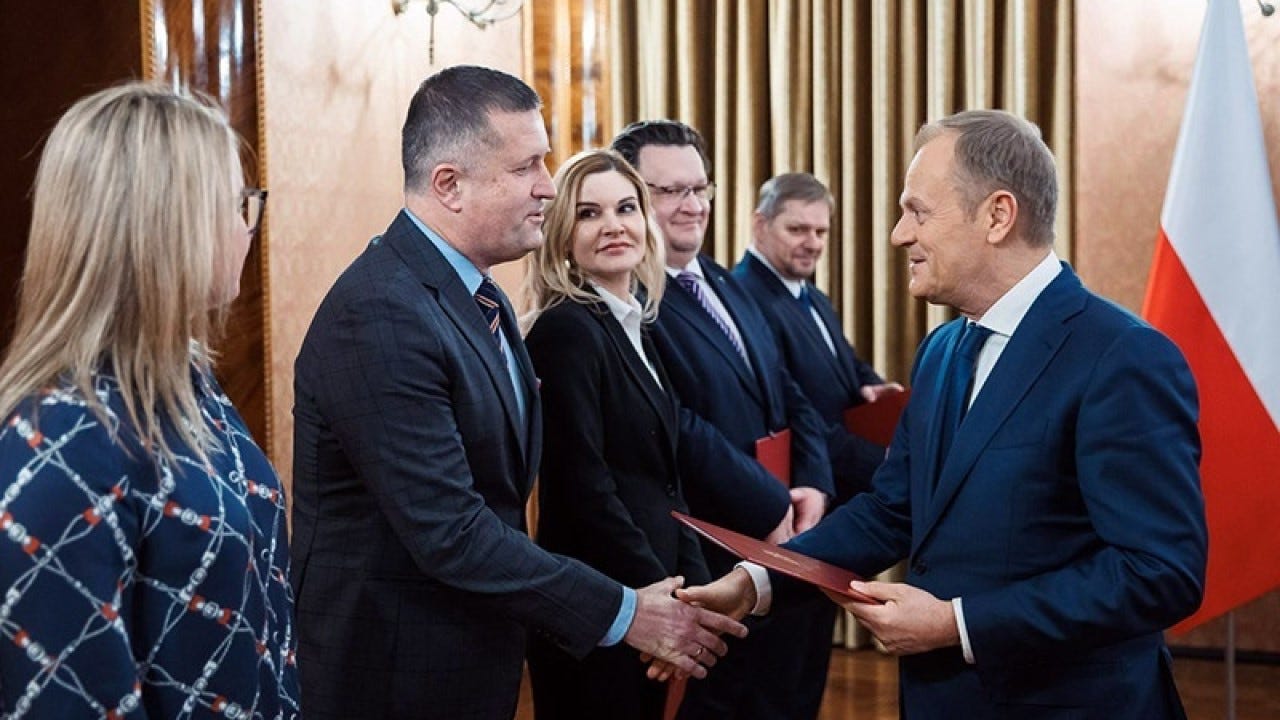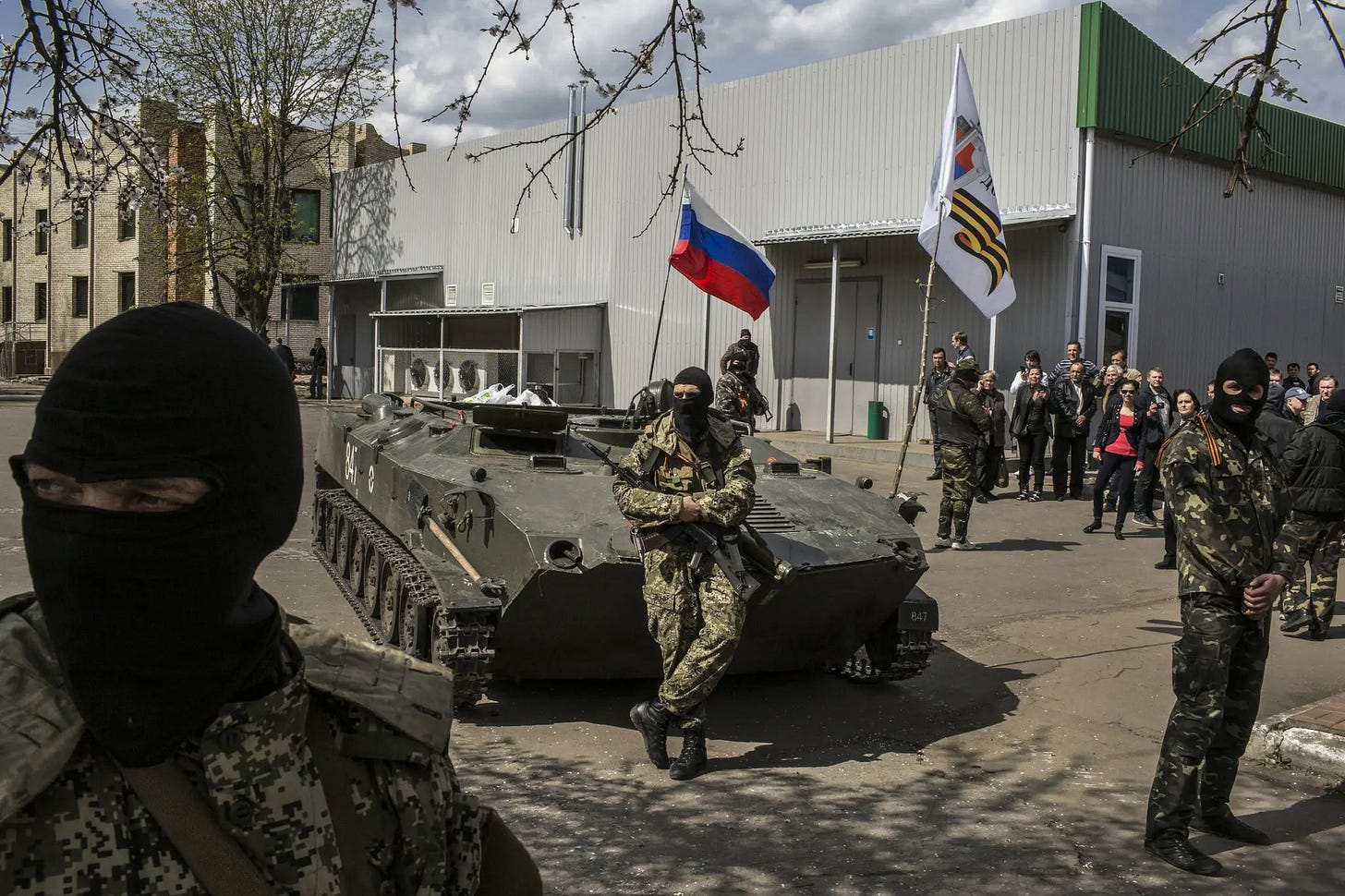Potential Threats to NATO: The Implications of General Jarosław Stróżyk's Appointment
A comprehensive analysis of potential risks arising from General Jarosław Stróżyk's appointment as Poland's Military Counterintelligence Chief and its implications for NATO's security posture.
In yesterday's post, we presented the matter of the controversial connections of the Polish Military Counterintelligence Service Chief Gen. Jarosław Stróżyk. Stróżyk was appointed to the position of head of Poland's Military Counterintelligence Service (SKW) and the chairman of the Government Commission for examining Russian and Belarusian influences thanks to Prime Minister Donald Tusk, who during his first term from 2007 to 2014 was responsible for the reset of relations with Russia. His biography, which we outlined yesterday, contains several very disturbing episodes and many connections with individuals who, in our opinion, under normal circumstances, would disqualify a person from holding such positions in the administration of special services of a country that is a leading element of NATO's eastern flank.
Below is a detailed analysis of the risks for NATO's eastern flank, along with forecasts of potential threats resulting from the presence of General Jarosław Stróżyk as the head of Poland's Military Counterintelligence and his connections with former communist structures, Russian and Belarusian institutions, and individuals with controversial pasts. In this extension, we outline the key risks and forecasts of possible threats that may arise in the near future.

1. Forecast of Increased Intelligence Infiltration and Sabotage of NATO Operations
Current risk: Concerns about the possibility of infiltration of Polish counterintelligence structures by Russian and Belarusian services are growing in the context of Stróżyk's connections with former agencies and Russian academic intelligence circles.
Forecast: We can expect increased intelligence activity by Russia aimed at acquiring information on NATO operations and counterintelligence procedures. Russian services may attempt to recruit contacts within the structures of the Polish military to obtain confidential information on NATO's defense plans. Such actions could lead to sabotage of military operations, for example, by disrupting communications, manipulating intelligence data, or creating chaos in a crisis situation. The disclosure of such activities could significantly undermine allies' trust in Poland, weakening NATO's position in the region.
2. Increased Risk of Hybrid Operations on NATO's Eastern Flank
Current risk: Stróżyk's connections with Russian institutions may facilitate Russia's understanding of internal processes and decisions of Polish counterintelligence, which can be exploited in hybrid operations.
Forecast: In the coming months, an intensification of hybrid activities can be expected, such as cyber attacks, disinformation campaigns, social destabilization through information manipulation, and attempts to fuel ethnic or political tensions. Russia may particularly intensify disinformation operations that will undermine morale in the region and question the image of Poland and NATO as effective guarantors of stability. Hybrid operations may also include provocative actions at the border, aiming to test NATO's defense capabilities and provoke concerns in the region.
3. Danger of Deterioration of International Relations and Weakening of NATO Unity
Current risk: Poland's relations with other NATO members may weaken due to loss of trust connected with Stróżyk's associations.
Forecast: In the longer term, as controversies around General Stróżyk persist, the Baltic states, the USA, and other key NATO countries may limit the level of operational and intelligence cooperation with Poland. It is expected that the U.S. administration, in the event of a change in the U.S. presidency, may tighten its approach toward Poland if reports of Stróżyk's unclear contacts continue to emerge. Such tensions may lead to strategic divisions within NATO, which Russia will try to exploit by escalating tensions or applying diplomatic pressure on eastern flank countries.

4. Potential Risk of Misjudging Threats from the East and Making Erroneous Tactical Decisions
Current risk: Stróżyk, who previously misjudged the risk of a Russian invasion of Ukraine, may make erroneous tactical decisions at critical moments.
Forecast: Russia may undertake actions aimed at disinforming key decision-makers in Poland, considering previous doubts about Stróżyk's assessment of the situation. A situation may arise where erroneous strategic decisions or delayed responses to threats weaken the defensive capabilities of NATO and Poland. For example, in the case of increased tensions on the Belarusian border, underestimating threats could result in insufficient defensive preparations, exposing NATO to escalation from Russia or Belarus.
5. Risk of Disinformation and Sabotaging Alliance Unity through Information Campaigns
Current risk: Russia may exploit the controversies surrounding Stróżyk to weaken alliance unity through propaganda campaigns.
Forecast: It is predicted that Russia will intensify information campaigns targeted at NATO, portraying Poland as a country infiltrating alliance structures with individuals sympathetic to Russia or loyal to former communist structures. Such narratives may be particularly attractive to anti-NATO media in Western Europe, which could result in decreased support for NATO in countries like Germany or France. Disinformation activities may weaken citizens' engagement in these countries with the NATO project, which will negatively impact mobilization and preparations for collective defense.

6. Increased Pressure on Baltic States and Defensive Weaknesses of the Northern Flank
Current risk: The Baltic states, which are directly exposed to threats from Russia, may perceive Stróżyk's presence as a signal of weakened regional security.
Forecast: Lithuania, Latvia, and Estonia may fear that the presence of a person with controversial connections in a key position in Polish counterintelligence will weaken defense readiness in the region. As a result, these countries may limit cooperation with Poland and focus on strengthening direct relations with the United States and the United Kingdom, fearing that Poland is not fully independent of Russian influences. Such a strategy could in the future lead to a varied degree of NATO engagement on the northern flank, which in turn would weaken the defensive capabilities of the entire eastern flank.
7. Predicted Increased Risk of Recruitment Attempts and Blackmail at High Positions
Current risk: General Stróżyk, having extensive contacts in the intelligence world and being a person with a publicly controversial past, may be susceptible to recruitment attempts or blackmail by Russian services.
Forecast: In the near future, increased interest from Russian intelligence services in Poland can be expected. They may try to contact individuals connected to Stróżyk, offering financial benefits or other means of pressure in exchange for access to confidential information about NATO's activities in the region. Russia may also attempt to blackmail Stróżyk himself, using information from his past to influence his decisions or force specific actions in favor of Moscow. Such actions could seriously harm the security of Poland and NATO.
Summary: Comprehensive Threats to NATO's Eastern Flank
In the current geopolitical context, General Stróżyk's connections and his past raise concerns about the weakening of key NATO security structures on the eastern flank. Forecasts regarding increased Russian intelligence activity, hybrid and disinformation operations, and potential attempts to infiltrate NATO's structure may lead to a deterioration of the region's defense readiness. Mutual distrust resulting from the controversies surrounding Stróżyk may also weaken operational cooperation, which in turn will weaken NATO's cohesion and effectiveness in the region. The increased risk of infiltration and internal divisions within NATO may be exploited by Russia to further pressure regional countries, destabilize NATO's eastern flank, and increase Moscow's influence in Central and Eastern Europe.






This is just another example of Tusk‘s pro russian, anti democratic and dictatorial Type of government in Poland today! This criminal Tusk Must be held responsibile for all of his anti- democratic and anti- Poland activities! Hopefully President Trump will be the catalyst for the renewed democracy in Poland and emergence of freedom again in Poland and all other freedom loving countries!